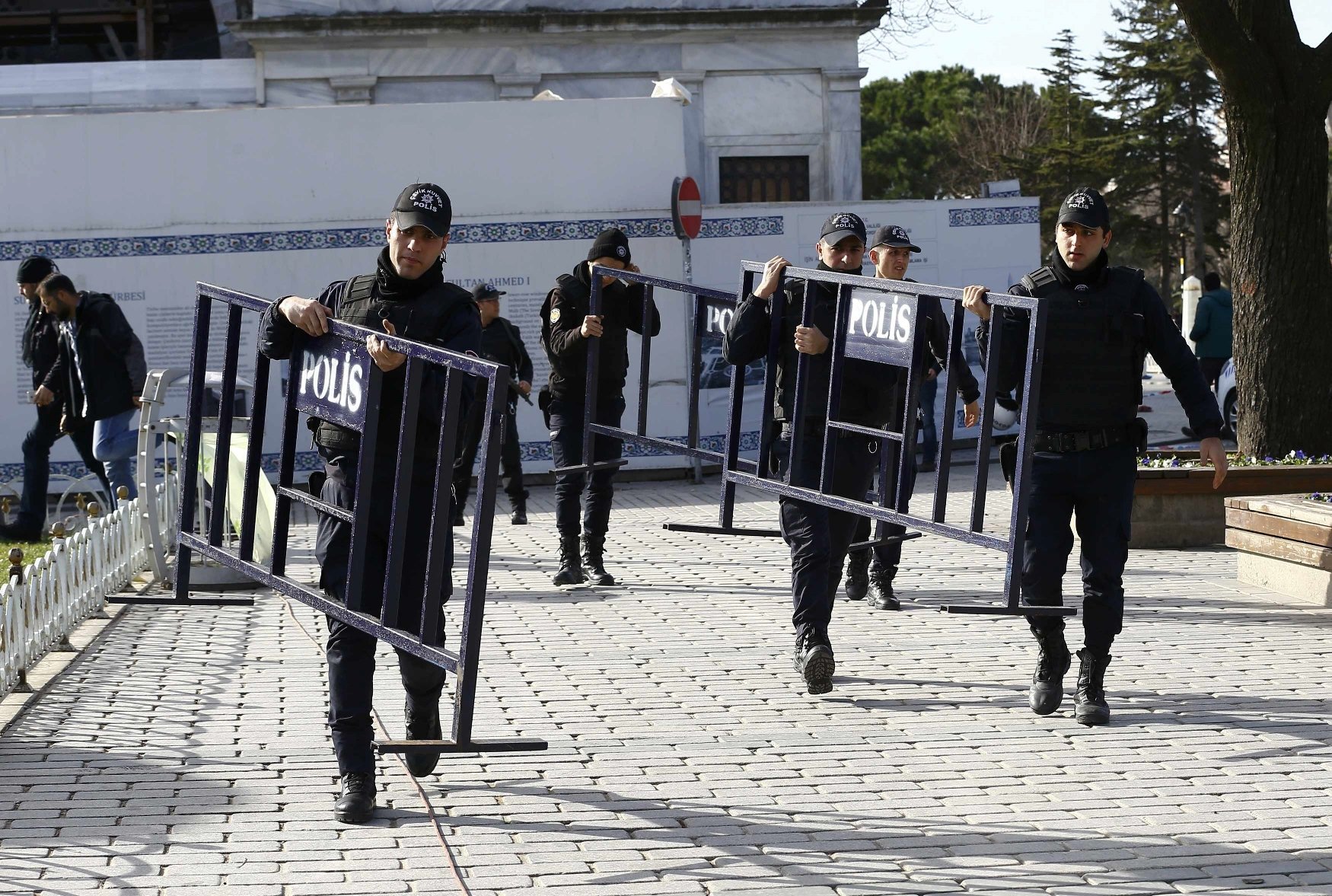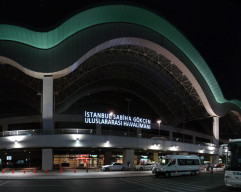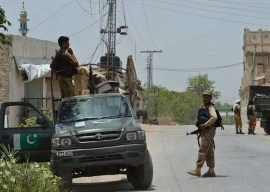
Grisly images from the scene showed several mutilated corpses lying on the ground close to the iconic Ottoman-era Blue Mosque in Sultanahmet, a district which is home to Istanbul's biggest concentration of historic monuments.
Turkish President Recep Tayyip Erdogan said the attack was carried out "by a suicide bomber of Syrian origin," while Prime Minister Ahmet Davutoglu said he belonged to the Islamic State extremist group.
"We have determined that the perpetrator of the attack is a foreigner who is a member of Daesh," Davutoglu said, using an Arabic acronym for IS. Officials earlier said the bomber was a Syrian national born in 1988.
One killed in blast at Istanbul airport, cause unknown
Speaking to AFP, a Turkish official said at least nine of the dead were German, with Davutoglu telephoning Chancellor Angela Merkel to offer his condolences, state media said.
Merkel said the latest attack would deepen German resolve to combat international terrorism.
"Today it hit Istanbul, it has hit Paris, it hit Tunisia, it had already hit Ankara," she told a news conference in Berlin.
Shortly after the blast, Germany warned its nationals to avoid tourist sites in Istanbul, a city of 14 million that has been hit several times by deadly attacks.
Turkey's Dogan news agency said nine Germans and two Peruvians were among the wounded.
 Emergency services attend the scene after an explosion near the Ottoman-era Sultanahmet mosque, known as the Blue mosque in Istanbul, Turkey January 12, 2016. PHOTO: REUTERS
Emergency services attend the scene after an explosion near the Ottoman-era Sultanahmet mosque, known as the Blue mosque in Istanbul, Turkey January 12, 2016. PHOTO: REUTERSThe explosion took place at around 0820 GMT by the Obelisk of Theodosius, a monument from ancient Egypt which was re-erected by the Roman Emperor Theodosius and stands just outside the Blue Mosque.
Police and ambulances raced to the scene, throwing up a tight security cordon around the area as helicopters hovered overhead, and crowds of worried locals and tourists clamoured to find out what had happened, an AFP correspondent said.
Turkey has been on high alert after a series of attacks blamed on the Islamic State group including a double suicide bombing in October in Ankara that killed 103 people.
The explosion was powerful enough to be heard in adjacent neighbourhoods, witnesses told AFP. Police cordoned off the area to shocked passers-by and tourists and the nearby tram service has been halted.
Blast hits Istanbul metro, six injured
"The explosion was so loud, the ground shook. There was a very heavy smell that burned my nose," a German tourist called Caroline told AFP.
"I started running away with my daughter. We went into a nearby building and stayed there for half an hour. It was really scary," she said.
"I heard a very loud blast, then came the screams," said a Turkish man who did not want to be identified.
"Then I saw a ball of fire, and started to run away. I saw about 10 people wounded, one of them was being helped by the tourists.
"I am 100 per cent sure it wasn't just a bomb, but a suicide bomber," he added.
The authorities imposed a broadcast ban on reporting of the attack, prompting television channels to halt live broadcasting from the scene although factual commentaries continued.
Turkey was hit by another major bombing on October 10 when two suicide bombers blew themselves up in a crowd of peace activists in Ankara in the bloodiest attack in the country's modern history.
That attack was blamed on IS extremists, as were two other deadly bombings in the country's Kurdish-dominated southeast earlier in the year.
Turkish authorities have in recent weeks detained several suspected IS members, with officials saying they were planning major attacks in Istanbul and Ankara.
"The style of the attack, a suicide bomber and the attack, a group of tourists, suggests a militant attack," a Western diplomat told AFP.
"If this is the case, it's a sign that Daesh has decided to attack the Turkish state," he added.
So far there has been no claim of responsibility for Tuesday's attack, but if IS did confirm its involvement, it would raise new fears that the almost five year conflict in Syria is spilling over Turkey's borders.
Long accused by its Western allies of not doing enough in the fight against IS, Turkey is now hosting aircraft from the US-led coalition engaged in deadly attacks on IS strongholds.
Turkey is also waging an all-out assault on the outlawed Kurdistan Workers' Party (PKK) which has staged dozens of deadly attacks against members of the security forces in the southeast.
A Kurdish splinter group, the Freedom Falcons of Kurdistan (TAK), claimed a mortar attack on Istanbul's second international airport on December 23 which killed a female cleaner and damaged several planes.










































COMMENTS (9)
Comments are moderated and generally will be posted if they are on-topic and not abusive.
For more information, please see our Comments FAQ